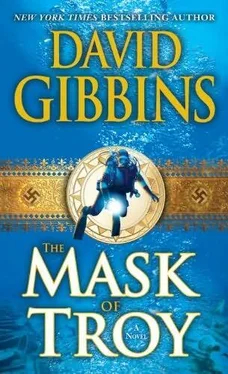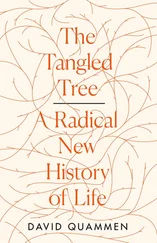David Gibbins - The Mask of Troy
Здесь есть возможность читать онлайн «David Gibbins - The Mask of Troy» весь текст электронной книги совершенно бесплатно (целиком полную версию без сокращений). В некоторых случаях можно слушать аудио, скачать через торрент в формате fb2 и присутствует краткое содержание. Жанр: Триллер, на английском языке. Описание произведения, (предисловие) а так же отзывы посетителей доступны на портале библиотеки ЛибКат.
- Название:The Mask of Troy
- Автор:
- Жанр:
- Год:неизвестен
- ISBN:нет данных
- Рейтинг книги:3 / 5. Голосов: 1
-
Избранное:Добавить в избранное
- Отзывы:
-
Ваша оценка:
- 60
- 1
- 2
- 3
- 4
- 5
The Mask of Troy: краткое содержание, описание и аннотация
Предлагаем к чтению аннотацию, описание, краткое содержание или предисловие (зависит от того, что написал сам автор книги «The Mask of Troy»). Если вы не нашли необходимую информацию о книге — напишите в комментариях, мы постараемся отыскать её.
The Mask of Troy — читать онлайн бесплатно полную книгу (весь текст) целиком
Ниже представлен текст книги, разбитый по страницам. Система сохранения места последней прочитанной страницы, позволяет с удобством читать онлайн бесплатно книгу «The Mask of Troy», без необходимости каждый раз заново искать на чём Вы остановились. Поставьте закладку, и сможете в любой момент перейти на страницу, на которой закончили чтение.
Интервал:
Закладка:
‘We need more treaties,’ Gladstone murmured, tapping his fingers against his cane. ‘Treaties, with redoubled effort. I will be prime minster once again. This has convinced me of it. I will stand for re-election.’
‘We need a balance of power,’ Hoar said. ‘We will never prevent nations from having weapons, but if we maintain our strength we may prevent war through deterrence.’
‘Much can be set in motion in a year,’ Gladstone said. ‘And then, if we can show to the world that it has worked in the past, there may be the vigour and strength of purpose to get it done.’ He turned to Bismarck. ‘Chancellor, you have famously said that history is more than mere written words. We are old men, but we need to make history, not write it.’
‘It seems that after all we speak from the same page, Herr Gladstone.’
‘Gentlemen,’ Schliemann said, turning to them. ‘There is an ancient expression of the Hittites. I give you a tablet of war; I give you a tablet of peace.’ He held out his hands as he spoke, palm up, left hand then right. ‘Which is it to be?’
Silently the others came up, first Gladstone, then Bismarck, then Hoar, and placed their hands one on top of the other, on his right hand. They remained still for a moment, and then Bismarck and Hoar withdrew, leaving Gladstone alone, staring into Schliemann’s eyes, a look of concern on his face. ‘My dear Heinrich,’ he said softly. ‘You have left your mark upon this age. An undying name. A name that I trust will be with us for many a year. You do not need to push so hard as to be injurious to your health, as is your wont.’
Schliemann squeezed his hand. ‘Your solicitation is most gratefully acknowledged. But have no fear. My health is redoubled by this meeting. My energy is undiminished. Great days lie ahead.’
Gladstone withdrew, and stood beside Bismarck in the shadows. Hoar raised his right hand and pulled a golden signet ring off his finger. ‘Gentlemen, I am humbled to be here. I feel a mere mortal among giants. This ring bears the crest of my forefathers, who signed the Declaration of Independence and the Constitution of the United States of America, the greatest affirmations of peace and liberty ever devised. Those documents, gentlemen, give us hope that the will of the individual can triumph. I give you this ring in solemn affirmation that I have spent and will spend my days in the pursuit of life, liberty and happiness for all mankind, and in observance of our pledge here today.’ He knelt down stiffly and pressed the ring as far as it would go into the earth on the side of the tunnel, then pushed a potsherd over the top of it. He got back up, tottering slightly. ‘And to you, Mr Schliemann, in your great endeavour to finish this excavation, I wish Godspeed.’
‘And Godspeed to you too, Mr Hoar.’ Schliemann turned to go, took a few steps and then turned back. The three men were still there, standing, but had receded into the gloom. For a split second he saw them for what they were, three old men already half into shadowland, looming like wraiths of long-dead kings, like the kings Schliemann imagined still pacing the halls and battlements above. He felt a chill wind, and wrapped his coat around him. Could these men still make history? Or had he deceived himself? Had his passion, his yearning for more and more discoveries, his endless delay in returning to Troy, year after year, made him push this day too far ahead? Had he left it too late? He shook away the thought, and raised his hand. ‘Godspeed to you all. Until we meet again here, a year from now.’
Schliemann returned on the path past the point where he had met Bismarck, following the line of little candles, now spluttering and dying. Night winds at Troy were always disturbing, and he half imagined the rustling he heard was not the wind in the grass but the advancing Greeks parting their way through wheat on the plain below, and the sound of bare feet pattering over the smooth adobe of the streets and walls, the trembling sounds of that final night before the storm, a night when each breath could be heard. He reached the ramp up the western wall of the citadel, on the edge of the great trench they had dug through the site. He looked up at the stars and saw Orion, the hunter, his favourite. Far above him, close below Orion, he saw black birds flying silently, heading north.
He looked towards the grassy knoll on the northern edge of the citadel, and felt a rush of warmth. Sophia was still there, framed by the night sky, the wind blowing back her veil and revealing the golden belt, the bracelets, the headband, glistening in the starlight. But was it Sophia, or was he imagining another, Helen of Troy? Schliemann closed his eyes for a moment, feeling dizzy, a sound like the sea coming and going in his head. He opened his eyes and saw that Sophia had lifted up a tallow torch and lit it, sending wisps of smoke curling in the wind towards him. The flames suddenly erupted, illuminating her red dress, and for a moment it looked as though they would devour her, as if she herself would become a torch, a leaping, twisting beacon of fire, a signal into the night. Was that how it had all begun? And was the Trojan Horse real, or was it some dark force of the sea, raging, tossing its mane, turning to fire and bloody murder as it swept death towards the citadel, breaking over the beacon, carrying all before it?
He knew Homer off by heart. He thought he knew about the Trojan War. A war fought for beauteous Helen, and the wealth she brought. But had it been? He closed his eyes, and tried to conjure it, melding fragmentary images as they came to him. The sea, the colour of widow’s tears, steel-blue. Grooms beside beached ships, whispering to tethered horses not to fear the sea, then kissing and releasing them. Harpies flying overhead, bronze and iron messengers of death. He looked at his hand, calloused as he imagined Agamemnon’s might have been: the hand of Agamemnon, people-devouring king, battle-wise, lion-maned, he who knew war in all its bloody ways. The ringing in his ears became shouts, bellows, roars. Blood was everywhere, pounding in his head, cloying in his nostrils, its iron taste filling his mouth. Dark blood spurting from wounds cleaved by champions. Blood swept up from the plain and falling like a rainstorm, staining the ground black. Blood lapping against Scamander’s shore, drenching the beach, drowning the plain below the battlements, seeping up over them. Sophia, blood-red beacon, dripping fire.
Schliemann gasped as if coming up for air, leaning against the stone ramp. Perhaps Gladstone had been right. He was letting the past consume him. He looked up and saw Sophia turn and walk towards him, holding the burning torch. He pushed himself back up, and waved at her. He remembered how close he had felt to her that night years before, in the shaft grave in the far-off citadel of Agamemnon. He remembered the thrill of that moment, but also the fear, a tremulous, paralysing fear, just before he had lifted the golden mask. A fear that had been his greatest weakness, the fear of making a discovery that would cap his career but dim the light of his passion and infect the memory of all that had gone before, the exhilaration that had fuelled him. He feared a discovery that might diminish his yearning for more, and diminish the supreme fulfilment he had found with Sophia.
And there had been the other, deeper fear, a fear of what he might reveal, an awful truth about the human condition, about war. Those terrible images of blood, those dreams that always came to him up here, were more than just a vivid imagining of Homer. He remembered what Bismarck had said. Coming events cast their shadows before. Schliemann had finally realized why those images so unnerved him. It was as if the tide of the future were rolling back, and he was seeing the river Scamander not drenched in ancient blood, in the blood of heroes, but in fresh, red blood, in the blood of the children of today. It was not the past he was seeing. It was the future.
Читать дальшеИнтервал:
Закладка:
Похожие книги на «The Mask of Troy»
Представляем Вашему вниманию похожие книги на «The Mask of Troy» списком для выбора. Мы отобрали схожую по названию и смыслу литературу в надежде предоставить читателям больше вариантов отыскать новые, интересные, ещё непрочитанные произведения.
Обсуждение, отзывы о книге «The Mask of Troy» и просто собственные мнения читателей. Оставьте ваши комментарии, напишите, что Вы думаете о произведении, его смысле или главных героях. Укажите что конкретно понравилось, а что нет, и почему Вы так считаете.












